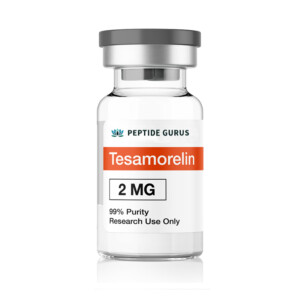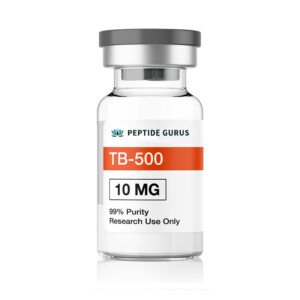Peptide Manufacturing Technology
Introduction
In the ever-evolving landscape of biotechnology and pharmaceutical sciences, Peptide Manufacturing Technology stands as a cornerstone, driving forward groundbreaking treatments and therapies. Peptides, short chains of amino acids, possess immense potential in medicine, owing to their high specificity, low toxicity, and ability to mimic biological functions. This article delves into the intricacies of Peptide Manufacturing Technology, exploring its advancements, production methods, optimization strategies, and diverse applications.
Foundations of Peptide Manufacturing
The journey of Peptide Manufacturing Technology begins with a deep understanding of amino acids, the building blocks of peptides. Synthetic methods are typically categorized into two primary categories: solid-phase peptide synthesis (SPPS) and liquid-phase peptide synthesis (LPPS). SPPS, particularly the Fmoc (9-fluorenylmethoxycarbonyl) and Boc (tert-butyloxycarbonyl) strategies, dominates industrial-scale production due to its flexibility, scalability, and ease of purification.

Solid-Phase Peptide Synthesis (SPPS)
SPPS involves stepwise addition of protected amino acids to a solid support, typically a resin, where each coupling reaction forms an amide bond. The process is iterative, with each cycle comprising deprotection, coupling, and optional capping steps to minimize side reactions. Automation of SPPS using peptide synthesizers has revolutionized productivity, allowing for the synthesis of complex peptides with high fidelity and reproducibility.
Liquid-Phase Peptide Synthesis (LPPS)
While less prevalent in industrial settings, LPPS offers unique advantages, particularly for the synthesis of peptides with unusual or labile modifications. In LPPS, unprotected amino acids react in solution, often requiring more intricate protection/deprotection strategies and purification techniques. However, its solution-phase nature can facilitate the incorporation of non-natural amino acids and post-translational modifications.
Optimization Strategies
Achieving high yields and purity in Peptide Manufacturing Technology necessitates the implementation of optimization strategies. This includes optimizing coupling conditions (e.g., selecting appropriate solvents, additives, and catalysts), controlling reaction temperatures, and minimizing side reactions. Additionally, the use of advanced purification techniques, such as high-performance liquid chromatography (HPLC) and electrophoresis, ensures the isolation of pure peptides.
Peptide Modification and Conjugation
Peptides can be further modified or conjugated to enhance their stability, solubility, bioavailability, or target specificity. Common modifications include pegylation (attachment of polyethylene glycol chains), glycosylation, and lipidation. Conjugation with carriers such as antibodies, nanoparticles, or polymers can also expand their therapeutic potential, enabling targeted delivery and controlled release.

Biopharmaceutical Applications
Peptides have found widespread applications in biopharmaceuticals, spanning from hormones and growth factors to immunomodulators and anticancer agents. They serve as lead compounds in drug discovery, where their high specificity and low toxicity make them attractive candidates for the development of novel therapies. Furthermore, peptides are increasingly explored in vaccine development, diagnostic tools, and regenerative medicine.
Advanced Drug Delivery Systems
The integration of Peptide Manufacturing Technology with advanced drug delivery systems has significantly expanded the therapeutic potential of peptides. These systems, including nanoparticles, liposomes, and hydrogels, enable controlled release, targeted delivery, and improved stability of peptides in vivo. By tailoring the delivery vehicle, researchers can optimize the pharmacokinetics and pharmacodynamics of peptides, maximizing their efficacy and minimizing adverse effects.
Challenges and Future Directions
Despite significant progress, Peptide Manufacturing Technology faces challenges related to scalability, cost-effectiveness, and the complexity of synthesizing longer or more complex peptides. Ongoing research focuses on developing novel synthetic methodologies, automation tools, and purification techniques to overcome these barriers. Additionally, the exploration of non-canonical amino acids and unnatural peptide bonds promises to expand the structural and functional diversity of peptides.
Sustainability and Environmental Impact
As the demand for peptides grows, so does the need for sustainable manufacturing practices. Researchers are investigating eco-friendly solvents, reusable catalysts, and waste minimization strategies to reduce the environmental footprint of Peptide Manufacturing Technology.
Regulatory Considerations
The development and commercialization of peptide-based therapeutics require compliance with stringent regulatory frameworks. Understanding and navigating these regulations, including those related to Good Manufacturing Practices (GMP), quality control, and safety assessments, is crucial for the successful translation of laboratory discoveries into clinical applications.
Collaboration and Partnerships
Given the multidisciplinary nature of Peptide Manufacturing Technology, collaboration among researchers, industry players, and regulatory agencies is essential.
PeptideGurus is a leading supplier of American-made research peptides, offering top-quality products at competitive prices. With a focus on excellence and customer service, they ensure a secure and convenient ordering process with global shipping.
CONTACT